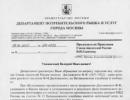How to quickly learn the material. Learning to learn: how best to absorb knowledge? When is the best time to study the material?
Throughout life, we perceive a lot of information, we learn poetry, learn new languages, understand formulas and theorems. And all thanks to what? Thanks to our memory! The brain is an organ that needs to be constantly trained and developed, then everything that you perceive will be securely fixed in your memory.
So, there are several ways that will tell you how to better remember information, learn a large amount in a short time, learn how to store the information received in memory.
Why Use Memorization Methods?
According to experts, cramming dates, facts and any other information will not bring anything good. It will not help anyone become smarter or learn the necessary data. These methods are ineffective, and they will hinder rather than help us. That is why scientists have developed more effective methods, thanks to which you can "negotiate" with the memory and get a good result.
You can teach your brain to absorb a large amount of data like a sponge, always shine with your mind and be on top. At the same time, it will not strain itself and seem complicated.
Well, let's look at a few tricks that will help you remember a large amount of information:
Multi-sensory perception
Each person reacts differently to stimuli, it is thanks to them that we can learn to perceive different information. So, we, irritating the sensors on the skin, feel cold and warm, damaging the receptors of the tongue, we can feel the taste. Accordingly, the more senses we use during perception, the better the material is remembered. For example, if you need to memorize the names of exotic birds, it is best not only to read their name, but also to look at a picture, and ideally, find singing or watching a video on the Internet. And if you manage to touch it, then it is unlikely that you will ever be able to forget it.
Presentation on the topic: "Laws of memory"
Linking with art objects
Due to the fact that the subconscious mind is perfectly stimulated by a variety of objects and works of art, you can wonderfully learn and remember what you need. This will happen in the case when the fact, the date will be associated with either a piece of music, or a sculpture, or any other masterpiece. The subconscious will open a special gateway in order to remember this information. This is very easy to learn.
Repetition before and after sleep
No wonder they say that if you put a book under your pillow, then the information itself will “leak out”. We do it a little differently, but nonetheless. If you learn something before going to bed, you can enhance the process of memorization, because when we sleep, our subconscious mind synthesizes information. Accordingly, while a person is sleeping, the brain is more willing to work on remembering information and will be able to remember it faster.
These methods are very effective, they work with the subconscious. But there are also methods that work directly with consciousness and memory, training them. Let's consider them below.
Ten tricks "Quickly remember everything!"
- Write down thoughts. One of the least pleasant ways, as it involves writing down negative events and thoughts on paper before directly studying the material. Our consciousness is very much concentrated on the negative, so it automatically remembers it. If you start studying immediately after writing down small negative details, then it is better to deposit the material in your memory.
- Trust nature. No wonder many students prefer to learn material in the fresh air. Nature increases the function of perception by 20%. If you do not have the opportunity to go out into nature, then let your brain rest and look at pictures of beautiful nature, and only then proceed to the exercises. This will help to learn a large amount of information at a time.
- Speak louder. If you need to learn foreign words, then pronounce them clearly and loudly. The volume of pronunciation increases the memorization of information by 10% when learning by heart.
- Add some expression. As we have said, the more senses involved, the better we remember. Add more emotions, gestures, facial expressions if you want to quickly learn how to memorize information, terms and foreign words. And learning will become more interesting!
- Use a voice recorder. Write down what you need to learn and turn it on in transport, before going to bed and at night. You will sleep, and the brain will remember. The amount of information in this case can be unlimited.
- Keep moving. During the perception and teaching of information by heart, move. Wind circles around the room, walk. Movement activates the work of our brain and you will be able to learn and remember everything better and faster.
- Change the picture. Let's say you need to prepare quickly for two reports (in one evening). Do this in different rooms. Thus, the information will not be shuffled when recreated.
- Write down the first letters. In order to quickly and accurately remember any information (for example, a song). Write it down on paper, and then write down only the first letters, trying to remember the word. Practice remembering by looking at the first letters, and then without this “cheat sheet”. Check, the song is much better remembered.
- Don't neglect sleep. The more you sleep after studying the material, the better you will be able to remember it.
- Go in for sports. Before studying the material, actively work out, then you can even do “War and Peace”.

We have considered effective methods for memorizing this or that information, which allow you to study a large amount of material, to do it efficiently and quickly. Now there is practice. Dare than more quantity training - the better the result! And remember, everything can be learned.
mnemonics
These techniques allow you to quickly memorize the information received and train the brain to increase its performance.
- Rhyme. This method consists in a different interpretation of the data obtained.
- Create phrases from the first letters of the received data. For example, a letter came and the first lines read - Good day. Take the first three letters "add" and create a new one in any form - the day is very cheerful.
- Bundle. Based on the name, it can be understood that we are talking about informarmation associated with a vivid illustration. For example, those items that you strive to remember on English language, can be linked to actions. For example, a fat cat - replace with - a large cat.
- Leads. The essence of the technique is to replace numbers with objects. Let's say 0-bagel, 1-stick, 2-goose, etc.
- Cicero technique. It consists in presenting objects for memorization in a familiar setting. For example, to memorize words-objects on foreign language, you need to put them in your bedroom. If you need to remember a particular word - the association comes with a familiar environment. This approach allows you to learn new words by heart, using a minimum of effort.
We will not be surprised that some of the methods of mnemonics will be familiar to you. However, this is a whole science that allows you to strengthen memory.
- Get into what you read. If there is difficulty in memorizing the material, then often this is due to a misunderstanding of what was read. Many people need to understand data in order to remember it. Here it is necessary to use logic and associations that will remain in memory.
- Abstract. Do not stop writing and preferably abstract. Suppose there is an important meeting and you need to remember a large amount of information - write abstracts, i.e. highlight the main. This will allow you not to miss the nuances and have complete information.
- Structure. If you do not like to write, then this technique will definitely suit you. Read the information, delve into it and sketch it in the form of a diagram. It's simple - there will always be beacons in front of you.
- Drawing. Perhaps the most common method of memorization. It is hard to say how it will manifest itself in you personally. we are all individuals. The main thing is that the figure corresponds to the data received.
- Slide show. Such presentations are an effective method in the field of business. For a competent, interesting and effective presentation of the material, it is enough to draw up a text outline using mind maps. There are many online programs for this.
Note that it is quite difficult to describe in one article all the ways that will allow you to better perceive and remember information. Therefore, let's give a simple advice - theory and practice - this is the basis of an excellent memory!
Each person in his life went through a certain stage when it was necessary to learn something. Everyone starts with kindergarten, then school, institute, advanced training courses and much more. Let's analyze in this article how to learn notes or any other assignments correctly.
It's not a secret for anyone that while studying, everyone has to learn some information, and then take exams or tests. But the problem is that not always, it turns out, to remember certain material. Let's talk about how to teach better. After all, as in other areas, here, too, you need to know some rules. And not only to know, but also to follow them.
Memorization methods
- First of all, motivate yourself. You need to come up with some kind of reward that awaits you in case of successful completion of the case. Mentally draw a situation in which you stand in front of the examiners and answer all the questions with a confident voice.
- Choose a specific time to study and try not to be distracted by anything. Let personal life, problems and worries fade into the background. Focus only on your goal. Don't give in to any temptation.
- After everything the necessary conditions on preparation will be accepted, you can start studying.
- In order to remember information, it must be comprehended and understood. Remember, you don't need to cram. It is better to simply understand and process all the given material. If you tell the teachers all the material in your own words, then he will understand that you did not memorize the topic of midnight, but really analyzed it and understood it.
- Please note that it is best to study the material in the evening or in the morning. But do not forget about the breaks between studies. While relaxing, you can listen to music, watch a comedy film, read a magazine.
- Remember that the brighter an important piece of information stands out against the background of another, the better. For convenience, you can highlight all the important aspects with a marker of a different color.
- Many students are interested in how to teach exam tickets. First of all, you need to learn one simple truth, do not teach selectively, but start from the first page and go to the end. Read the question first, then the theory, and so on several times. A day after you have learned a certain ticket, try to answer it from memory. If you decide to write cheat sheets, then write. Since all the material does not fit on tiny pieces of paper, you will need to highlight the most basic. Thus, whether you like it or not, remember what you wrote anyway.
Several conditions for successful memorization
- Many people say that they just have a bad memory and therefore cannot remember this or that material, but this is not true. You just need to show interest in what you need to learn.
- If feelings “penetrate” in the material, then it is very easy to remember. For example, poems about unrequited and unrequited love, a funny ballad, etc.
- A very important condition for successful memorization is, of course, the understanding of the information that needs to be learned. If you do not understand the idea that the material carries, then you will not learn it, but memorize it. As a result, you will not learn something new that will stick in your memory, but you will forget everything that you have memorized in just a couple of days.
- You need to set yourself a goal to learn this material. Convince yourself that this is important to you and useful to you in life. Then everything learned will certainly be remembered. If you teach only in order not to get a deuce, then the information is not assimilated.
- In order to better remember the rules, you need to disassemble them yourself and come up with examples. When a person combines memorization with activity, the result is much better.
- Perseverance is also very important. By persevering and bringing what you started to the end, you will achieve a lasting and complete memorization.
- When preparing for an exam, cramming should be avoided. It is better to systematize all knowledge. First of all, try to retell the read text in your own words and remember the most important points. On the exam, it is for them that your memory will “cling”. After all, remembering some date, you will tell about all the accompanying events that it entails.
- Don't miss a single pre-examination consultation.
- A balanced and nutritious diet plays a very important role. The impending exams are not a hindrance to a hearty lunch. Quite the opposite. Feeling hungry, you will not be able to fully concentrate on your studies and will constantly be distracted by something. Don't go on a diet during exams. Exams are already stressful for your body, and then there's the diet. Experts also recommend avoiding the use of energy drinks. They are not only ineffective, but also very harmful to the stomach. Moreover, after them comes a decline in strength.
- You should not lead a sedentary lifestyle. Better go in for sports. Do exercises every morning, go to the pool or go for a run. This way you relieve stress. Experts have found that physical activity greatly affects the state of mind in general.
- Before exams, you do not need to set yourself up for the bad. If you are worried, then do not ask classmates who have already passed how everything went. This will only make you more nervous. It is better to repeat the learned material. Enter the classroom with confidence. Having pulled out a ticket, do not panic even when you forgot something. Just sit down and get ready to go. Rewrite the questions and try to answer them from memory. Start answering the question that seems easiest to you. Outline your answer. Then move on to the next questions.
Now you know how best to learn any material. Whether it's exam tickets or just a love poem. This will allow you to master knowledge without spending a lot of time on it. We wish you good luck!
We learn throughout our lives, from childhood to old age. Playing the guitar, new software, raising a child - the human brain constantly absorbs knowledge, however, this happens at different speeds. In childhood, information is absorbed very quickly, but the older we get, the more difficult it is to learn.
Below you will see several ways that will help you hack your mind and make it work faster and better.
Maintenance
Like any complex mechanism, the brain requires regular maintenance, and if you do not neglect it, it will be able to cope with any task. A few good habits help to keep the brain in perfect condition, so that the learning process will be faster and easier.
go in for sports
I don't trust any thought that didn't come while moving.
Take a break from studying
You can not do only one thing every day - work or study. It is important to periodically be distracted by something else so that the brain sums up and processes the information during this time.
If you decide to take up a hobby, choose activities that involve concentration and hand-eye coordination, such as juggling. One study found that juggling has a positive effect on brain function. True, positive consequences took place immediately after people gave up a new hobby.
have fun
Laughter is the best way to relax and avoid burnout, especially when you have to study at a fast pace. Laughter has been proven to help solve problems and be creative.
How to make the process of learning easier?
Warm-up for the brain
Before diving into work, you can have a little fun, along the way, setting your brain to work. For example, you can mentally select rhymes for words or solve a simple problem. Such a warm-up helps to relax and tune in to the perception of more complex things.
study together
If your training is like storming a fortress, you can find someone to support you. Whether it's a group, a club or a friend - in a team it's easier to focus on the material and make the learning process itself more organized.
Robert E. Kennedy Library at Cal Poly /flickr.comSet up a place
The environment is very important for learning. Ideally, the space should be clean, quiet, and fresh, but variety doesn't hurt either. For example, in good weather, you can try to work in the park or in a cozy cafe. The only thing that should not be mixed is training and. Even though it's very comfortable the bed is subconsciously associated with sleep and relaxation, so it will be harder for you to concentrate.
metacognition
Most of the advice on how to improve the learning process is based on metacognition. This concept can be defined as the art of awareness own consciousness. You evaluate your mindset, your ability to complete the task, and the goals that will fit.
You need to step back from the first impression of the material and evaluate how quickly you learn knowledge, are there any problems and ways to learn more productively.
Do one thing at a time
Multitasking is a real talent, but unfortunately it reduces work efficiency. If you do several things at the same time, it is impossible to fully concentrate on them, so the time needed to complete the task increases.

Don't be afraid of failure
A group of researchers from Singapore found that people who solve complex math problems without instructions and help, most often they could not cope. However, in the process, they found interesting ideas that helped them in the future.
This can be called "productive failure" - when the experience gained in the process of solving more than once helps in the future. So do not be afraid of mistakes: they will come in handy.
Test yourself
Don't wait for the last exam - test yourself often or ask a friend to give you a little test. “Productive failures” only work with finding solutions, and if you fail an exam that required rote memorization of material, this will not help your learning, only hinder it.
cut material
It is useful to supplement your notes with visual elements: graphs, charts or maps.
Think about where it can be applied
Very often, when presenting facts and formulas, the scope of their application is missed. Dry knowledge is quickly forgotten, and if you want to remember something for a long time, try to find a use for it on your own. real life. Knowing how, where and why to apply facts in real life will securely fix the information in your memory.
Apply different methods
The more diverse the sources of knowledge, the more likely it is that they will remain in your memory.
The coordinated work of different areas of the brain improves the perception and storage of information.
For example, this could be reading articles, listening to audio, watching videos, writing or typing by hand, speaking out loud. Most importantly, don't do everything at the same time.
Link to existing knowledge
If you can mentally connect your knowledge with what you have learned before, this will help you learn faster and more efficiently. Don't leave knowledge alone - build it into the big picture of the world that is in your brain.
You will succeed
Be yourself and know that you will succeed. Not only because it's true, but also because faith in the power of one's intellect really increases it.
We are all different, so our strategies for preparing for the exam will be different. Get away from your individual characteristics. If you are auditory, read textbooks and notes aloud, if you are kinesthetic, write according to your notes and plan your answer.
Another effective method- mind map. This is a great way to structure information, refresh knowledge and quickly get to the heart of the subject even after a long time. We talked about how to make mental maps and how to work with them in more detail.
What questions to learn first? If during the semester you have a good understanding of the subject, proceed to the questions about which you have at least some idea.
If everyone new block cannot be understood without the previous one, then there is only one option: learn everything strictly in order.
It also makes sense to start with difficult questions, allocating enough time to study them. It's best to deal with them before you get tired and lose focus. Save the easy questions for later.
And be consistent. Stick to the chosen strategy, even if you start to panic with the approach of the exam.
Seek understanding, not memorization
Delve into the ticket, and do not try to memorize it. Memorization is a deliberately losing strategy, which also takes more time. Find logical connections in questions, invent associations.
Of course, in each subject there is information that you need to know by heart: dates, formulas, definitions. But even they are easier to remember if you understand the logic.
Do not tell the material in your own words, speculate so that the answer is more detailed.
Method "3-4-5"
A good method when you need to prepare for an exam in a short period of time. It will only take three days, but there is a lot of work to be done. Every day you need to work through all the material, but at a different level, constantly deepening.
On the first day, you read your entire abstract or training manual so that knowledge on the subject, roughly speaking, gets involved. We conditionally believe that you can already pass the exam for a triple.
On the second day, you deal with the same questions, but already from the textbook, in order to learn more details and subtleties. If you prepare diligently, you can already count on the four.
On the last day, you bring your answers to the ideal: repeat, fill in the gaps, remember. After the third day, you are ready to pass the exam with excellent marks.
Two days to study, one to review
The system is very simple: all the material must be divided into two identical parts and learned in two days. The third day is entirely devoted to repetition.
Set a time limit
You can delve into each topic indefinitely, so do not try to remember all the subtleties. From a large chapter in the textbook, highlight the main thoughts: structured material of a small volume is easier to perceive.
In we shared all the tickets between classmates and everyone cooked brief summary in its part. If your group does not develop mutual assistance, you can ask for materials and cheat sheets from senior students.
Don't get stuck

If you feel like you're sitting on one question for too long, skip it. The best motivator when preparing is a timer. Decide how much time you can spend on one ticket, such as 30 minutes, and when the time expires, move on to the next one. Set aside a few hours before the exam to deal with missed questions.
Make a ticket response plan
Any, even the most extensive question can be described in a few words. Moreover, each thesis should evoke associations.
Such a plan can be quickly reviewed before the exam to tune in to the working mood. There is a well-known method of three sentences: write out for each question a problem, a main idea and a conclusion.
Study depends on the subject
Not only you have individual characteristics, but also the subject under study. For example, the exact sciences - physics - require practice. For the humanities, it is important to be able to process large amounts of information, remember dates, names, definitions.
But, I repeat, the study of any subject must be approached actively: to delve into the issue and strive for understanding.
The format of the exam is also important. If you are preparing for an oral exam, say your future answers out loud. My favorite tactic is to retell the material to someone at home or, when they are not enthusiastic, to myself in front of a mirror. Even better, if someone will not only listen to you, but also ask questions when something is not clear.
If you are preparing for testing, it is worth solving a dozen typical tests, writing out your mistakes, repeating problematic topics and solving everything again.
If the exam is written, you need to think over the structure of the answer in advance.
Prepare for two or three
Write down the most difficult, in your opinion, topics - the collective mind will help you deal with them faster. It is better to cooperate with classmates who are determined to study, otherwise the preparation for the exam can turn into an ordinary pleasant meeting with friendly conversations.
No, this does not mean that joking and relaxing is forbidden. Just remember the main purpose of the meeting.
 Viktor Kiryanov/Unsplash.com
Viktor Kiryanov/Unsplash.com - Take breaks. This will help you relax and sort out new information.
- Turn off your phone, stay away from social media, stay away from the TV. If you can't resist the temptation, read up on dealing with distractions.
- Get enough sleep.
- Do not forget about food: it will give extra strength to your body. However, you shouldn't overeat. Usually, after an overly heavy lunch, he begins to sleep, and he doesn’t want to study at all.
- Avoid negativity from other people. The atmosphere during classes should be as favorable as possible.
- Don't rely too much on cheat sheets and cheating. And if you don’t know how to write off well (you must agree, you also need to be able to do this), you shouldn’t even start.
- Arrange a place for classes: bright, comfortable, with all the necessary materials at hand. The bed is not the best option: there is a high probability of falling asleep on a boring topic.
- Make bulleted lists: they are easier to remember.
- Sports will help to relax and stretch the muscles that have become stiff during prolonged sitting. In addition, while running, cycling, or similar physical activity, you can slowly reflect on complex issues.
- If you feel that you are not in the mood to study, start with the topic that seems most interesting to you. This will help you get on track.
- Walk in the evening. During preparation, the nerves are usually on edge, so you need to relax a little.
- Make a clear preparation plan.






